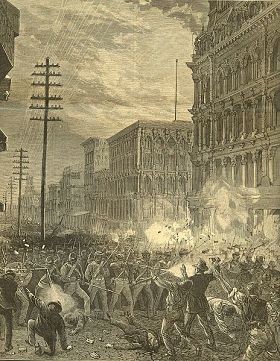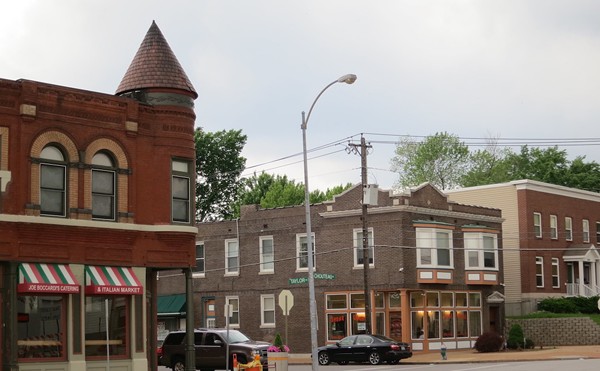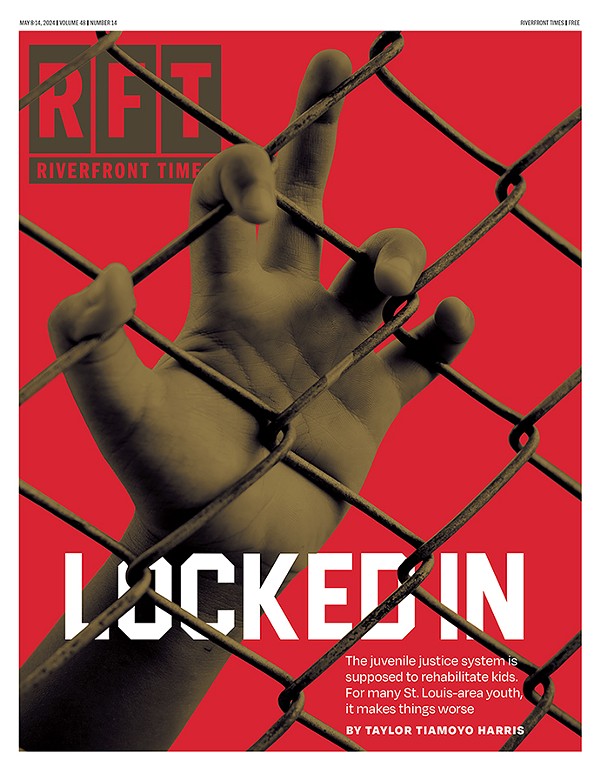Did you know that St. Louis was once in danger of falling into the hands of the Commies? Yep, it's true. Back in July of 1877, workers in St. Louis, led by the Marxist Workingman's Party, organized the first general strike in American history. For six glorious days, workers controlled the city's businesses, including the railroads and meat-packing plants, until the whole thing was (predictably) squelched by an influx of Federal troops and prominent local citizens who eventually started up the Veiled Prophet Parade and Ball.
This is the 133rd anniversary of the strike, not that auspicious an anniversary, but please bear in mind members of the St. Louis United Front have been trying to organize a celebration for the past three years. Workers of St. Louis can united tomorrow, July 10, at one p.m. at Wilson Park in Granite City for When the River City Was Red: Commemorate the General Strike of 1877. Like any good leftist event, there will be speakers and folk-singers and also refreshments.
"There aren't a lot of celebrations for working-class victories," observes Amber Robbins, one of the event's organizers.
In 1877, like now, the U.S. was beset by a recession and a blistering heat wave. The railroad companies decided to institute ten percent pay cuts for its already low-paid workers (a brakeman, for instance, made only $1.75 a day). Railroad workers, righteously pissed off, went on strike all across the country.
In St. Louis, the Workingman's Party, whose membership included workers of all kinds, not just for the railroad, led the strike. They organized a massive rally attended by 5,000 people where speakers incited the crowd by saying things like, "Capital has changed liberty into serfdom, and we must fight or die."
St. Louisans were inspired. Calling for nationalization of the railroads, mining and all other industry, thousands of workers, both black and white, joined in a general strike. They succeeded in halting the railroads and production at meat-packing plants.
Historian David Burbank writes:
Only around St. Louis did the original strike on the railroads expand into such a systematically organized and complete shut-down of all industry that the term general strike is fully justified. And only there did the socialists assume undisputed leadership. . . . no American city has come so close to being ruled by a workers' soviet, as we would now call it, as St. Louis, Missouri, in the year 1877.
Of course it couldn't last. After six days, federal militia marched in and broke the strike.
For a more complete account, check out this excerpt from A People's History of the United States by Howard Zinn.
Robbins sees parallels between the summer of 1877 and today. "It's pretty relevant right now because of the financial situation," she says. "The unions are neglected. It's a good way to look at history and a way to think about working conditions.






